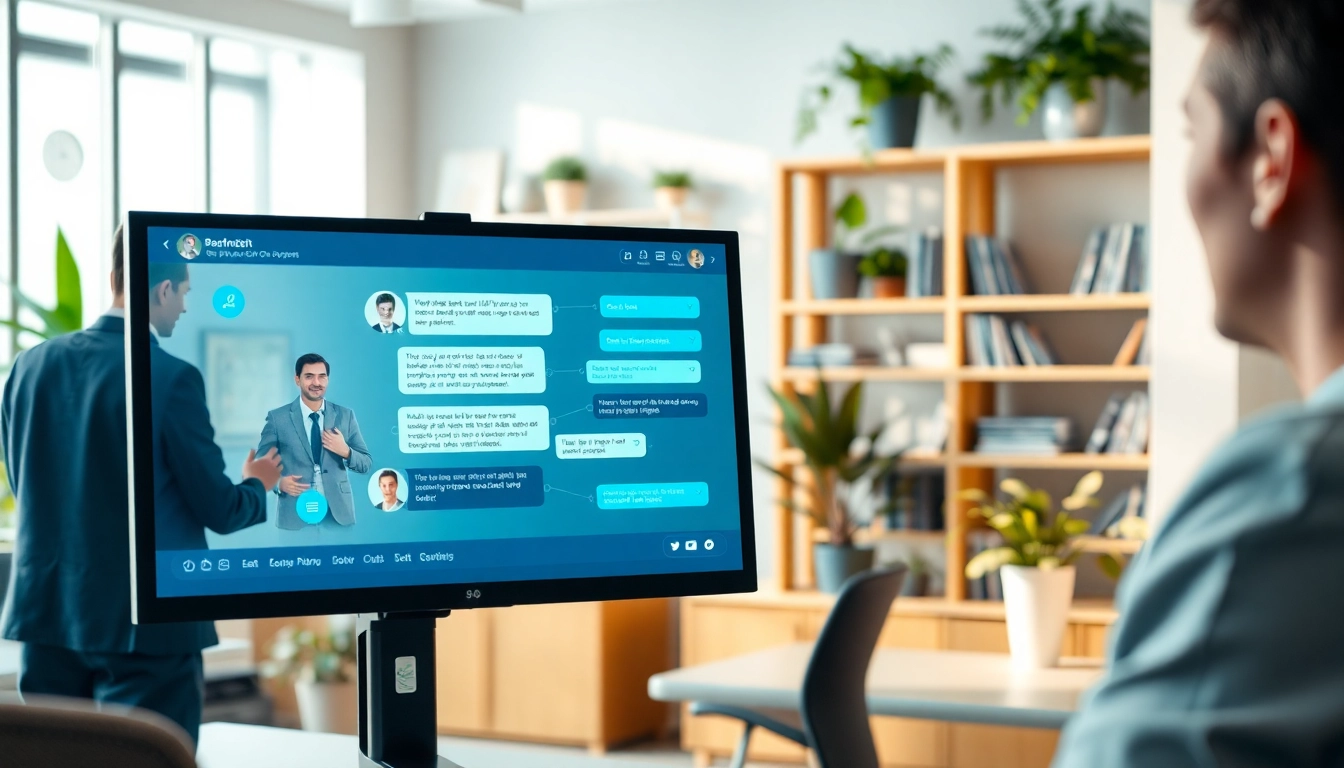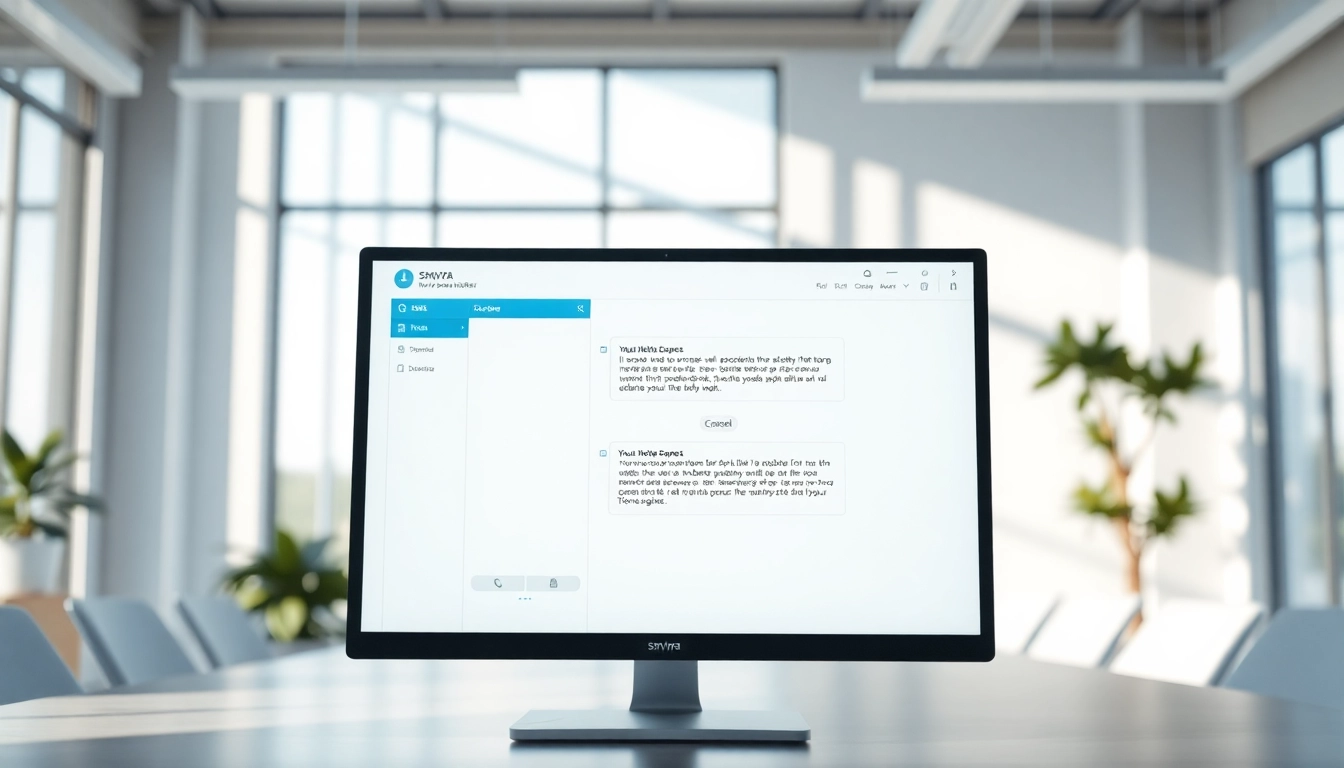Understanding AI Chat Bots
Definition and Overview
AI chat bots are sophisticated software applications designed to simulate human conversation through text or voice interactions. They utilize artificial intelligence (AI) and natural language processing (NLP) technologies to interpret and respond to user inquiries effectively. In simple terms, an ai chat bot can engage with users in a conversational manner, providing assistance, answering questions, and performing tasks that would typically require human intervention.
Key Features of AI Chat Bots
AI chat bots come equipped with a variety of features that enhance their functionality and user experience. Some of the key features include:
- Natural Language Processing (NLP): This technology enables chat bots to understand and respond to user inputs in a natural way.
- Machine Learning: With machine learning capabilities, chat bots can learn from interactions, improving their responses over time.
- Multi-Platform Support: AI chat bots can operate on various platforms, including websites, mobile apps, and social media channels.
- Personalization: By analyzing user data, chat bots can provide tailored responses and recommendations to enhance user experience.
- Integration: AI chat bots can integrate with customer relationship management (CRM) systems and other business tools to streamline processes.
Common Use Cases
AI chat bots have become integral in various business processes across different industries. Some common use cases include:
- Customer Support: Chat bots can handle customer inquiries 24/7, providing instant responses and reducing wait times.
- Lead Generation: By engaging visitors on websites, chat bots can collect contact information and qualify leads for sales teams.
- E-commerce Assistance: They can help users navigate an online store, recommend products, and facilitate transactions.
- Appointment Scheduling: Many businesses use chat bots to manage booking appointments, mitigating scheduling conflicts.
- Feedback Collection: Companies deploy chat bots to gather customer feedback, helping improve products and services.
Benefits of Implementing AI Chat Bots
Improved Customer Support
One of the primary advantages of AI chat bots is their ability to enhance customer support. By providing quick and accurate responses to customer inquiries, chat bots can significantly improve customer satisfaction. They can handle a large volume of queries simultaneously, ensuring that customers receive timely assistance. Furthermore, chat bots can operate around the clock, allowing businesses to provide support outside of traditional hours.
Cost Efficiency and ROI
Implementing AI chat bots can lead to substantial cost savings for businesses. With the ability to automate routine tasks, companies can reduce their reliance on human agents for simple inquiries, leading to lower operational costs. Additionally, chat bots can improve efficiency, minimizing response times and facilitating quicker resolutions. This efficiency often translates into a higher return on investment (ROI) as businesses can allocate resources to more complex issues that require human intervention.
Increased Engagement and Conversion Rates
AI chat bots can significantly boost user engagement by providing a personalized experience tailored to individual customers. They can greet visitors, ask questions, and offer product recommendations based on user behavior and preferences. This level of engagement not only keeps visitors on the site longer but can also lead to increased conversion rates. Studies have shown that businesses utilizing chat bots are more likely to convert leads into sales compared to those without.
How to Choose the Right AI Chat Bot
Assessing Business Needs
Before selecting an AI chat bot, it is crucial to assess your business needs and objectives. Consider what specific problems you aim to solve with the chat bot. Do you require customer support, lead generation, or perhaps both? Understanding your primary goals will help narrow down the features you need in a chat bot and ensure that it aligns with your overall business strategy.
Evaluating Features and Integrations
Different chat bots come equipped with various features. It is essential to evaluate them according to your requirements. Consider functionalities like NLP capabilities, machine learning, and how well they integrate with existing systems such as CRM platforms and e-commerce solutions. An ideal chat bot should seamlessly integrate into your existing ecosystem, enhancing rather than complicating your current workflows.
Cost Considerations
While there are many affordable options available, the cost of AI chat bots can vary significantly depending on features and capabilities. Consider your budget and be sure to evaluate the long-term costs associated with the chat bot, including maintenance and upgrades. It may be beneficial to request quotes and even trial versions from various providers to assess their value versus their pricing.
Best Practices for Deploying AI Chat Bots
Designing User-Friendly Interfaces
A user-friendly interface is critical for the effectiveness of an AI chat bot. Ensure that the chat bot’s design is intuitive and easy to navigate. It should prompt users clearly on what information is required, and responses should be easy to understand. Testing the user experience with real customers before full deployment can uncover any issues within the interface.
Training for Optimal Performance
To get the most out of your AI chat bot, it must be trained effectively. This process involves feeding the bot with relevant data, setting up conversational flows, and continuously updating it based on new information or user interactions. Training the bot improves its ability to understand various queries and enhances its performance, leading to better customer interaction.
Monitoring and Analyzing Performance Metrics
After deployment, it is crucial to monitor the performance of your chat bot. Evaluation metrics might include response time, user satisfaction ratings, and resolution rates. Regularly analyzing these metrics allows businesses to identify areas for improvement and make data-driven decisions that enhance the chat bot’s effectiveness.
Future of AI Chat Bots in Business
Emerging Technologies and Trends
The landscape of AI chat bots is continually evolving, with emerging technologies such as deep learning and advanced NLP reshaping their capabilities. Future chat bots will likely incorporate voice recognition and advanced emotional intelligence, allowing them to handle complex conversations with nuanced understanding. Businesses that stay ahead of these trends will enjoy a competitive edge in customer engagement.
Impact on Customer Interaction
The future of customer interaction will heavily rely on innovations in AI chat bots. With capabilities to personalize experiences at an unprecedented level, customers can expect more dynamic and relevant interactions. The seamless integration of chat bots into customer journeys will allow businesses to foster stronger relationships with their clients, ultimately leading to brand loyalty and improved retention rates.
Predictions for Growth and Development
The trajectory for AI chat bots indicates robust growth in adoption across various industries. As more businesses recognize the value of automation, the demand for AI chat bots will soar. Predictions suggest that advancements in AI and machine learning will continue to make chat bots more efficient and capable, paving the way for innovative applications that enhance user experiences across the globe.



